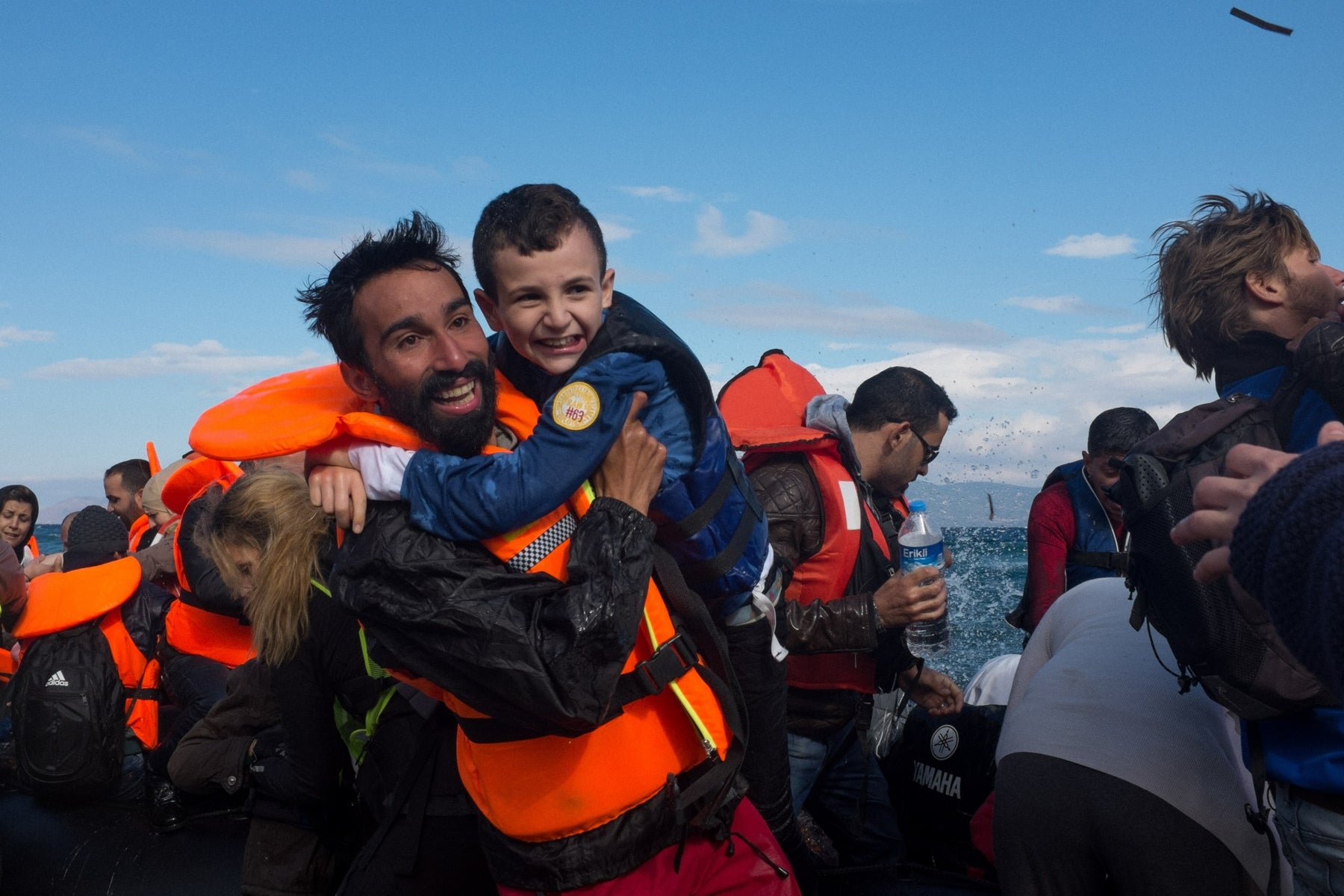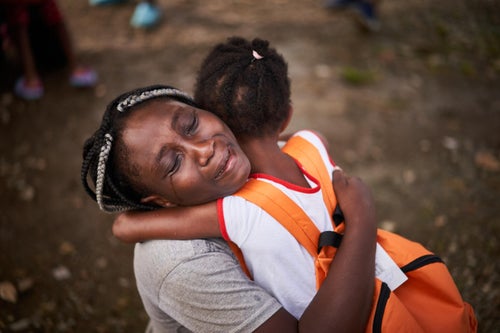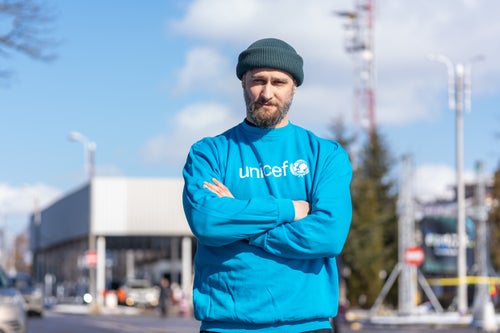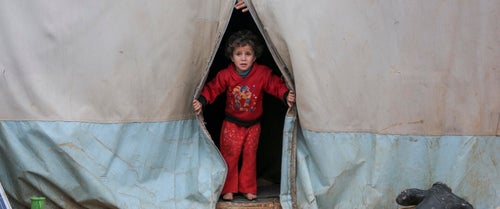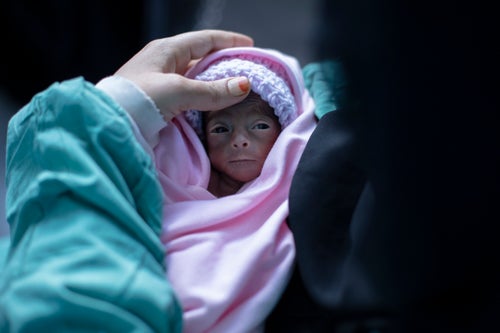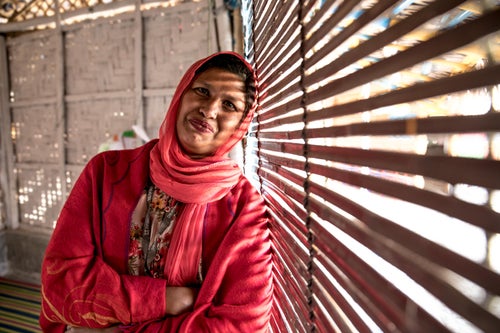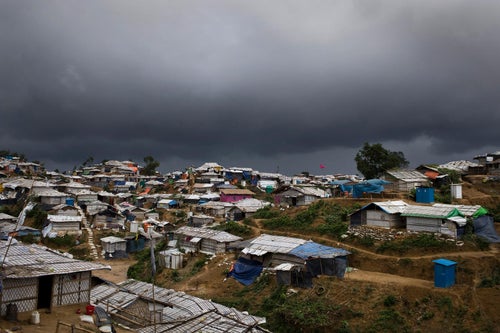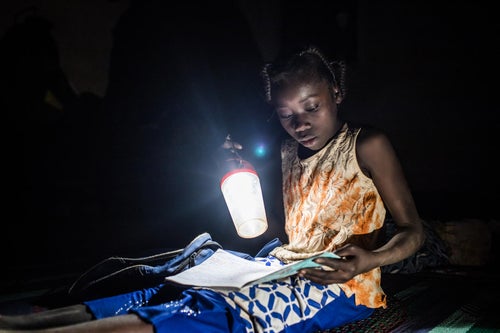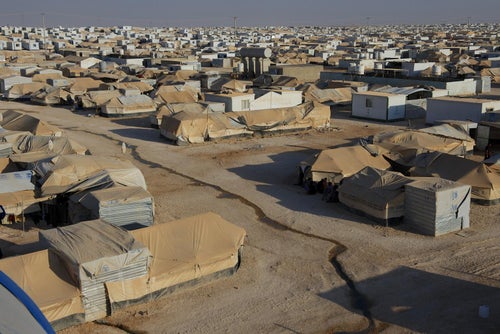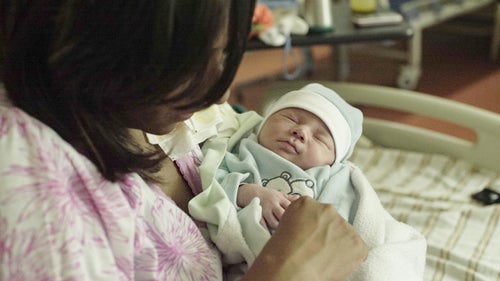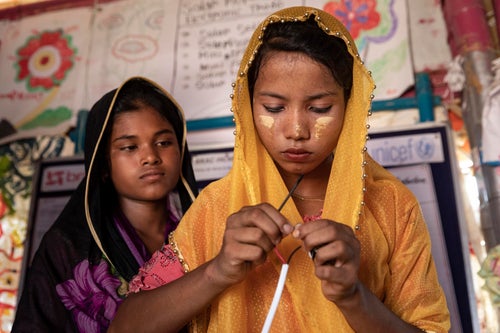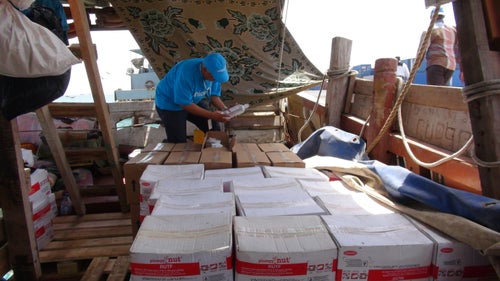The number of people affected by conflict, disaster and humanitarian crisis has doubled in the past decade.
There are now more refugees than at any other time since World War II: millions of people robbed of the chance to live freely and safely. At this historic moment, everyday people like international donors and local volunteers are coming through for children and families who’ve lost everything to violence.
1. This Spanish lifeguard who became a lifesaver for refugees

"I am a diver,” says Albert. “I scrub the hulls of sailboats for a living here in Barcelona. I am also a lifeguard. Last summer some friends and I saw television pictures of refugees dead in the water. After a few moments we couldn't watch any more. We decided then and there that we would do something.
“We went to Lesbos, Greece and crammed into a little car. When we got to the beach we just started pulling people out of the water. Everybody told us, what you are doing is really useful. Soon after people came to know us as 'The Spanish Lifeguards'. But the truth is that we were just normal people who decided to help out.”
2. This Greek barber who gives free haircuts to young refugees
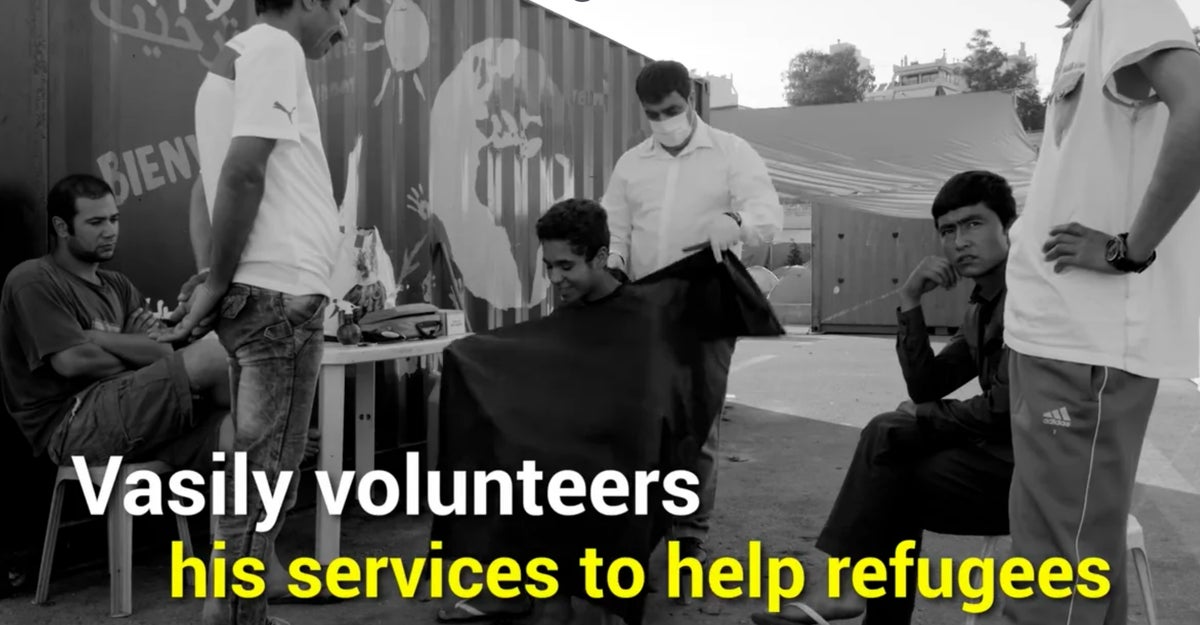
This Greek barber who gives free haircuts to young refugees
This Greek barber who gives free haircuts to young refugees
“I do my best to help them,” says Vasily, the inspiring Greek barber who gives free haircuts in the style of famous footballers to young refugees in Athens.
3. These Syrian UNICEF volunteers helping children stay in school
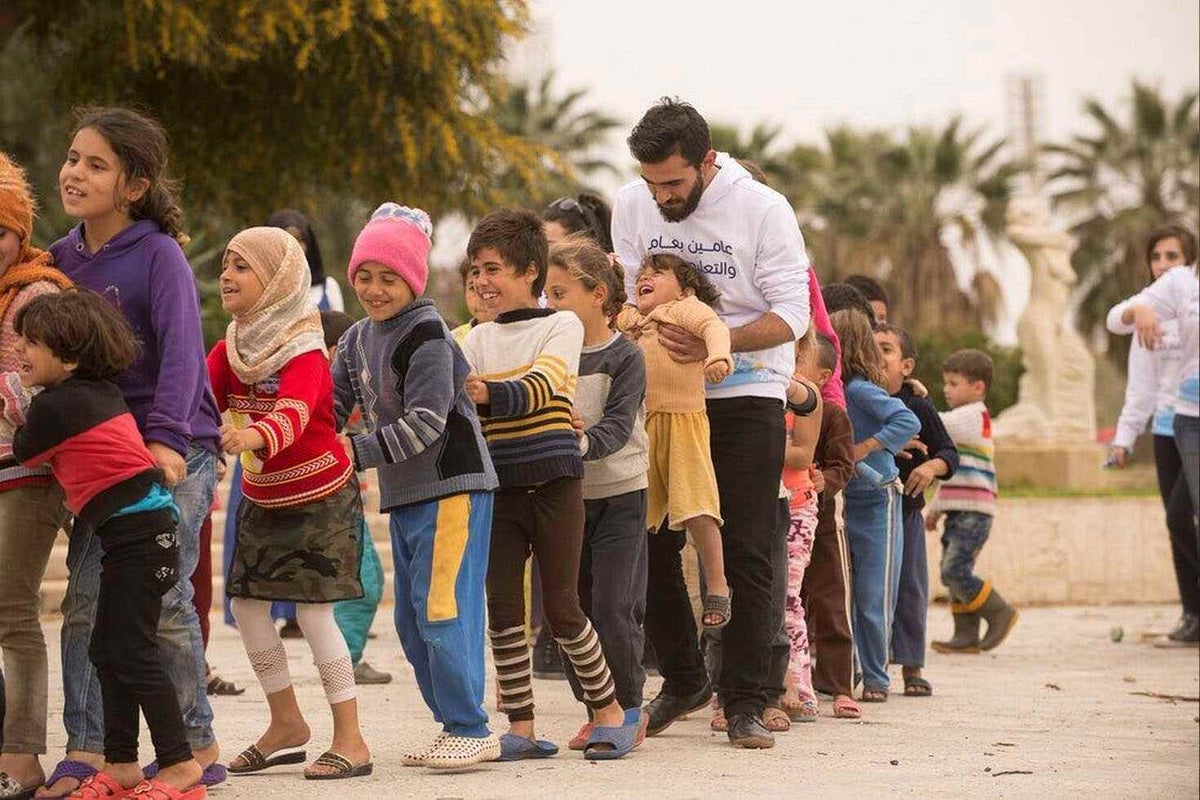
“I believe in volunteering for this cause because seeing a child smile is worth the world,” says Bilal, a volunteer helping UNICEF bring psychosocial support to 425,000 children and their parents in Syria in 2016.
“We as youth are now responsible to improve our society, which was severely affected by this ugly war. It’s a duty on our shoulders to make sure every child is in school. We are more capable than anyone else to reach children because it wasn’t so long before we were children ourselves; we understand them.”
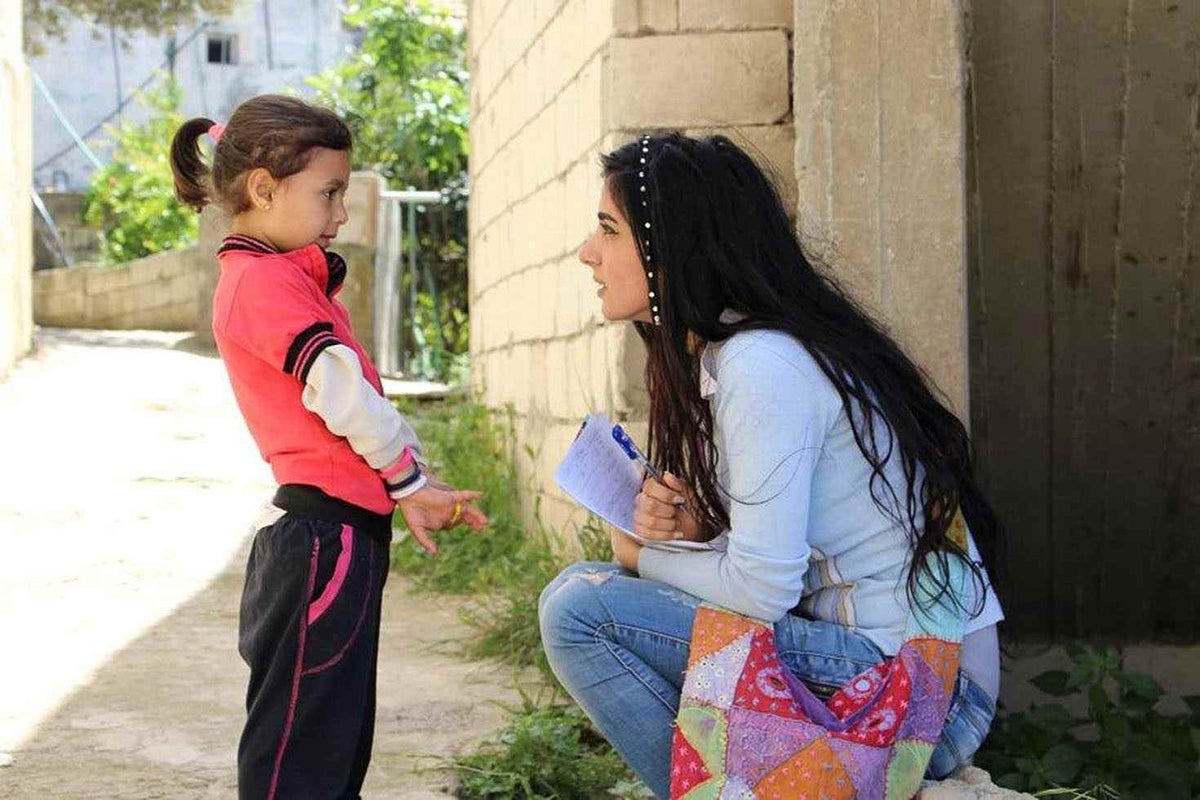
Hiba, a 21-year-old volunteer with UNICEF, says she wants to combat illiteracy in Syria.
“It’s one of the most important problems to face in our society, and it’s our responsibility as youth to do so,” she says. “We are an educated generation of university students and graduates; it’s our responsibility to make sure that all children get the same chance.”
Hiba’s dedication will help UNICEF reach a massive 3.2 million Syrian children with formal education - and almost a million with non-formal learning - this year.
4. This small community in Lake Chad who have taken in people fleeing violence with open arms
The violence of terrorist group Boko Haram has forced 2.6 million people across Nigeria, Niger, Chad and Cameroon from their homes. When children and families have nowhere left to turn, the people in this small village in Chad are doing everything to accommodate them.

“I was shocked when they told me how their village was burned. They were staying on the sand under the trees. I did not think twice and gave them this house." Al Hadji Hassan, 72, is hosting Ismael Adam, 33, and his family.
Fatime, 28, from Tagal cooks lunch for every child staying with her.
“Look how many mouths we have to feed,” she says. “It’s not easy with so many children around but one day, it can be our turn. We can also be chased from our home. That’s why we have to share.”
5. These seven-year-old boys who prove friendship knows no borders
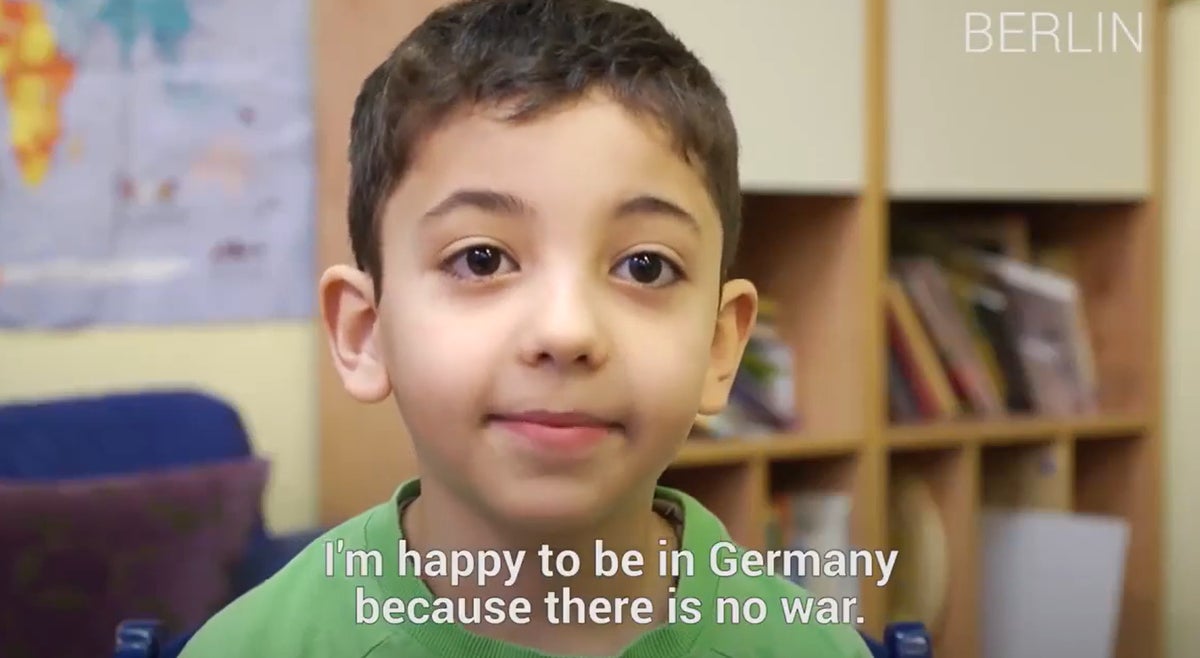
These seven-year-old boys prove that friendship knows no borders.
“I’m happy to be in Germany because there’s no war,” says Nawwar, a young boy from Syria. Nawwar and Alec became good friends at school, after Alec acted as his translator in class.
Nawwar’s family fled conflict in Syria and now he’s safe and learning again at the Nelson
Mandela school in Berlin. That’s where he met Alec, a German boy who acted as his translator. Alec’s openness and kindness has had a big impact on Nawwar, who’s survived risks no child should ever see. He can finally be a child again.
“Alec is a good friend and I play with him a lot,” Nawwar says. “We play LEGOs and Minecraft.”
6. This man in Chad who volunteers to give children a safe space to play
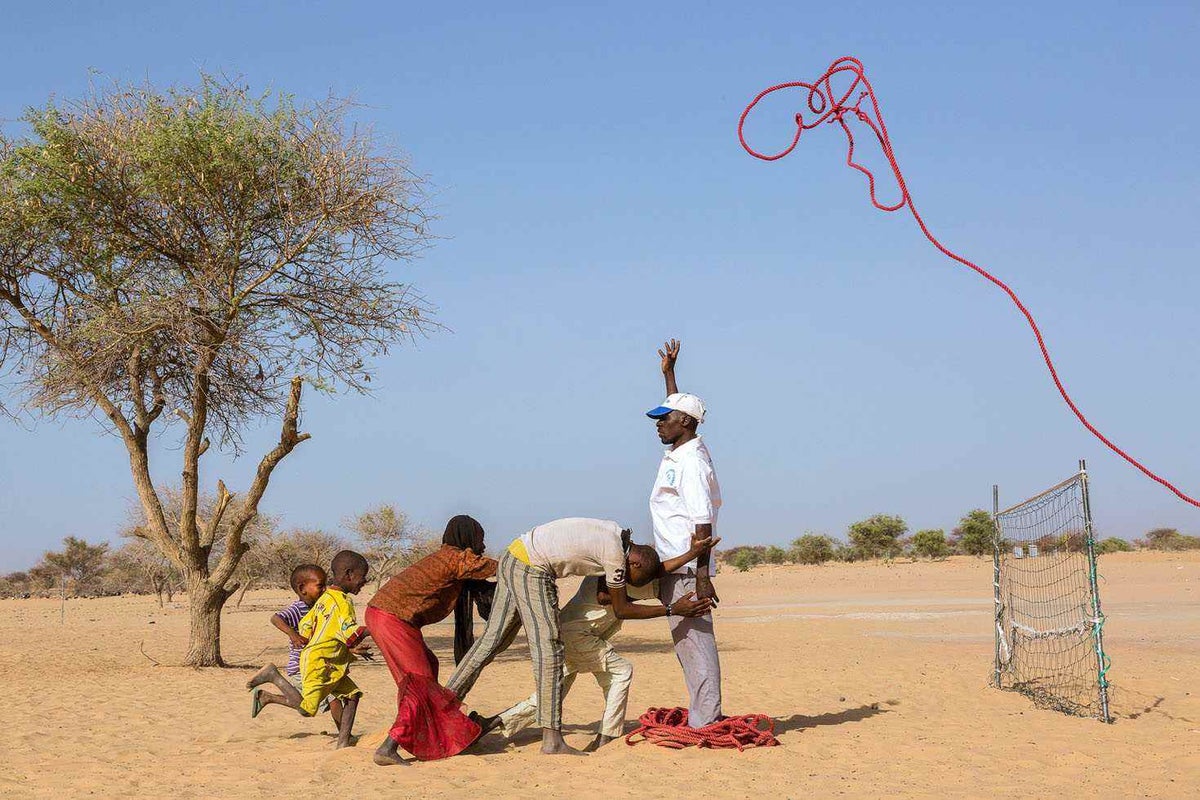
29-year-old Barnabas believes that no matter where a child is, no matter what comes their way, they have a right to play, socialise, learn and express themselves. That’s why he volunteers every day in the UNICEF-supported child-friendly space of the Dar es Salam refugee camp.
There, he makes sure children who’ve fled Boko Haram have a safe space to just be kids. They are just a few of the 586,400 children UNICEF will reach with safe places to learn in the Lake Chad region this year. We couldn’t do it without volunteers like Barnabas.
"In the morning I tie up a long red rope between the trees and posts all around the child-friendly space,” says Barnabas. “The rope protects children when they are playing sports and games so no vehicles can cross and put them in danger. For me, the rope is a symbol of protection."
7. This Syrian refugee who teaches children how to program
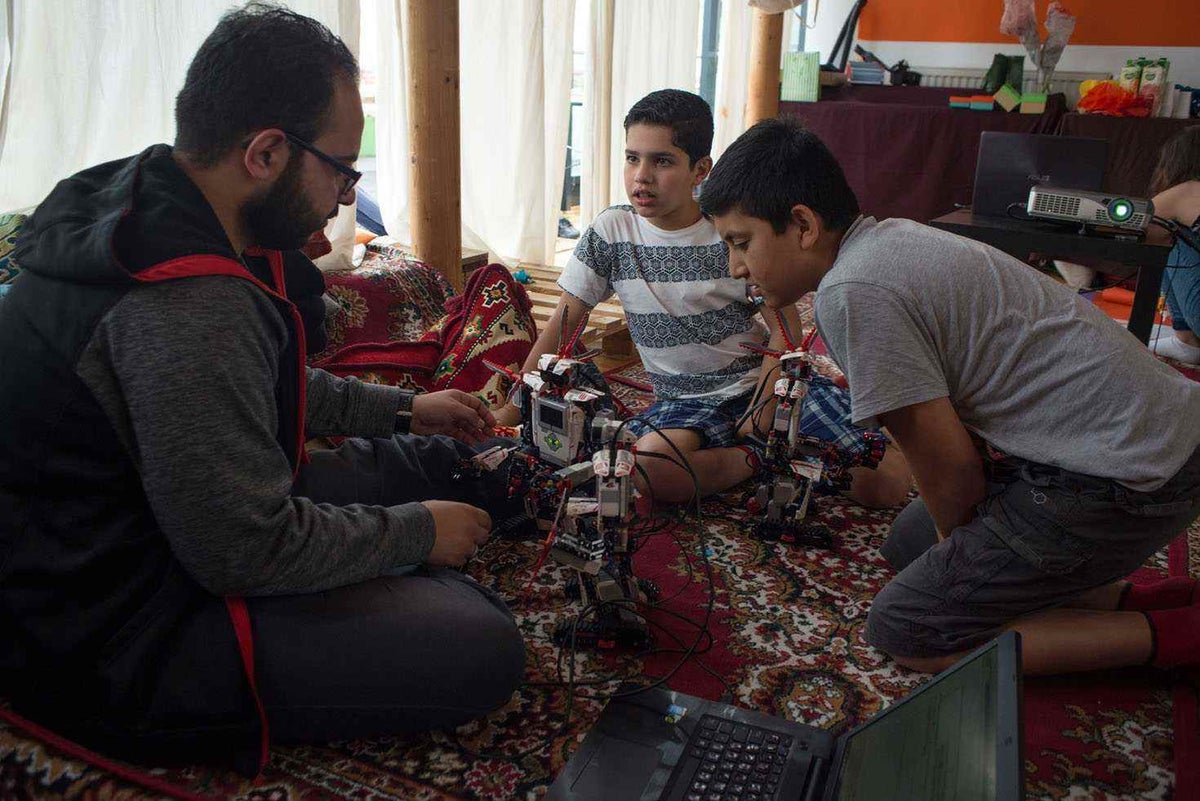
When Syria's war spun out of control in 2011, Asem, 21, was forced to quit his studies in mathematics and become an ambulance driver. Two years later, his ambulance was bombed and he lost his left leg. Still, he counts himself lucky to have been taken to a hospital in Jordan where doctors were able to save his life. For Asem, recovery lived in the desire to learn something new. He learned software coding and 3-D printing, managing to design and build a new prosthetic leg for himself. "Peace and knowledge is the only way to rebuild our lives," he says.
Last year, Asem made the passage to Europe and arrived in Berlin. He spends his time teaching software programming to kids who have witnessed war. "Learning is the way we put our problems behind us and get excited about life," he says. Next, Asem hopes to make 3-D printed equipment to help Syrian rescue workers save victims of the continuing conflict. "Refugees come to Europe with different skills," he says. "But we all have one thing in common. We all want to be a part of this society."
8. This woman from the Netherlands who wants to help other mothers like her
Darcia came to Greece hoping to give away the specialised baby carriers she makes to refugee mothers. But the huge demand for basic services meant she instead spent her days fetching water and blankets and even walking into the sea and carrying babies off the incoming rafts.
“I’m a mum, so what inspired me is to see other mums in need,” she says. “Because if I’m fleeing a war, with a child, I hope there is another mum saying, ‘OK, let me help you.’”
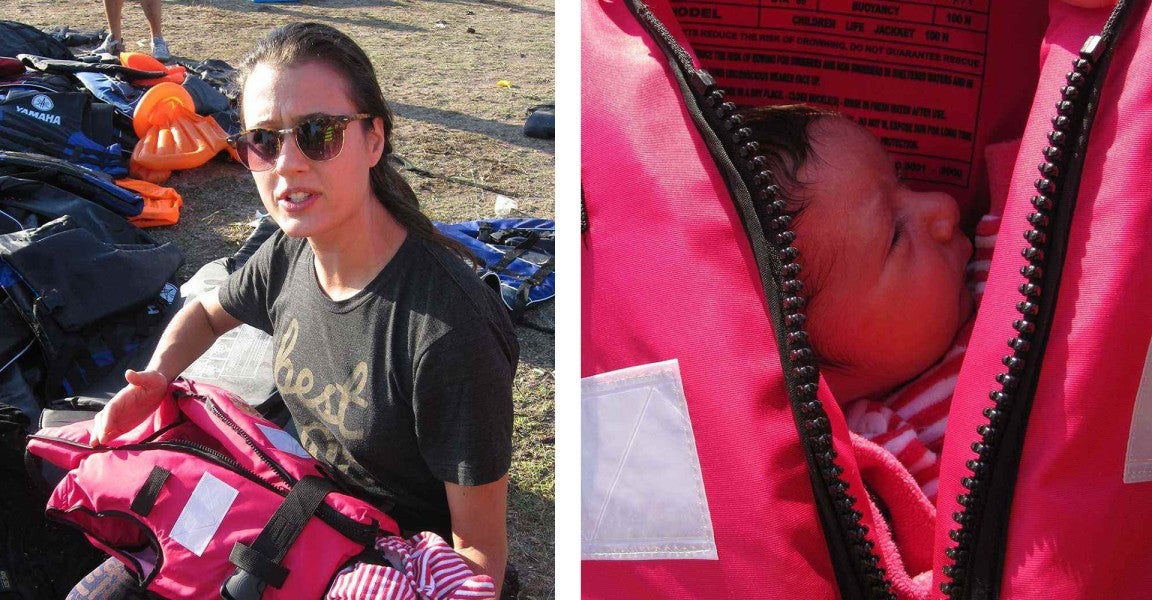
“I had a baby of five days old in my hands,” Darcia says. “It came in a life jacket. Somebody handed me a life jacket and I was like, ‘Why am I getting a life jacket?’ And I looked inside, and inside was a five-day-old baby.
“I don’t see myself as doing something special,” she says. She’s been here only four days and will be leaving soon. “I think we’re just doing a humane thing. That’s why I’m coming back. It feels like it’s not done.” Read more of Darcia’s story here.
9. And this Syrian refugee who wants to give back
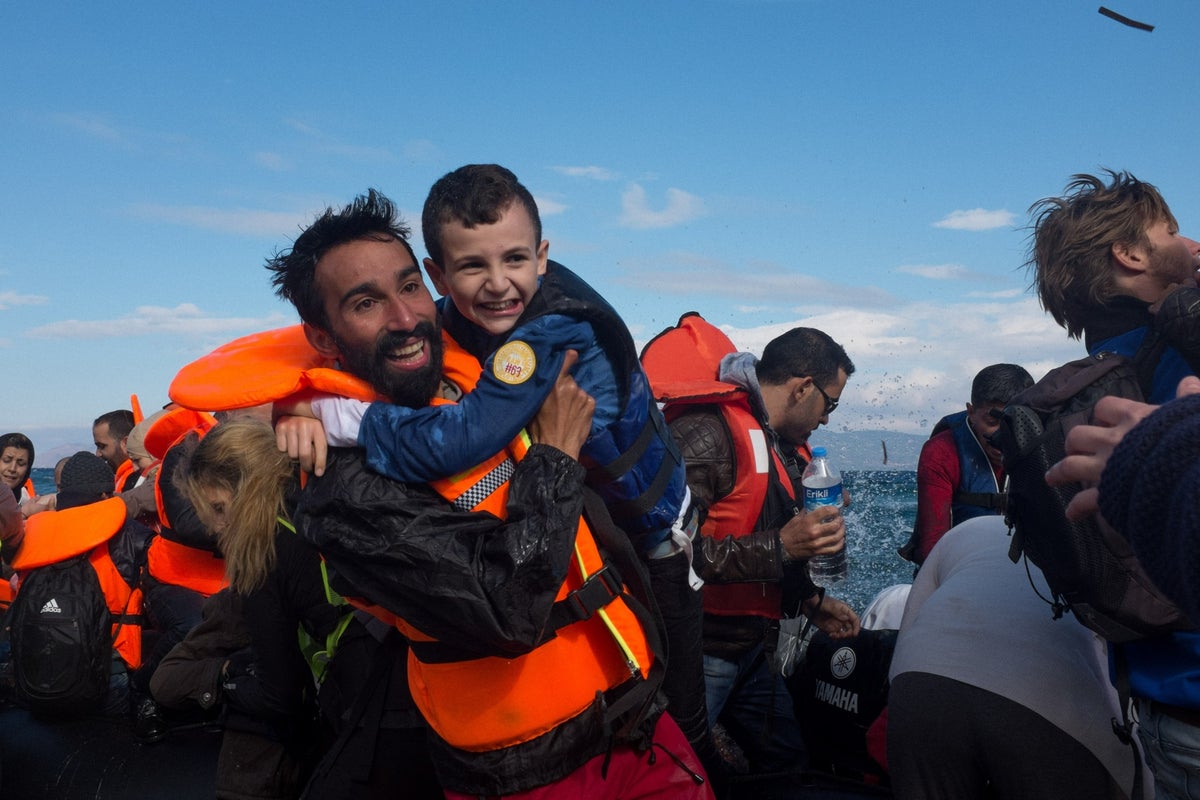
“When their boat arrived, everyone looked pale and afraid and this boy was the only one with a big smile,” says Kinan, who travelled from his home in Belgium to help families arriving on the Greek island of Lesbos.
“I did this because I am myself a refugee and I know this feeling very well,” he says. “Now it's time for me to give them something back. Many refugees were surprised, but they were happy at the same time when they found out that I was Syrian. They are my brothers and sisters in humanity.”
Just like Kinan, UNICEF works to protect children in crisis. In Greece, UNICEF has brought psychosocial support to refugee and migrant children and their families.
10. These cafe owners who open their doors to refugees in Europe
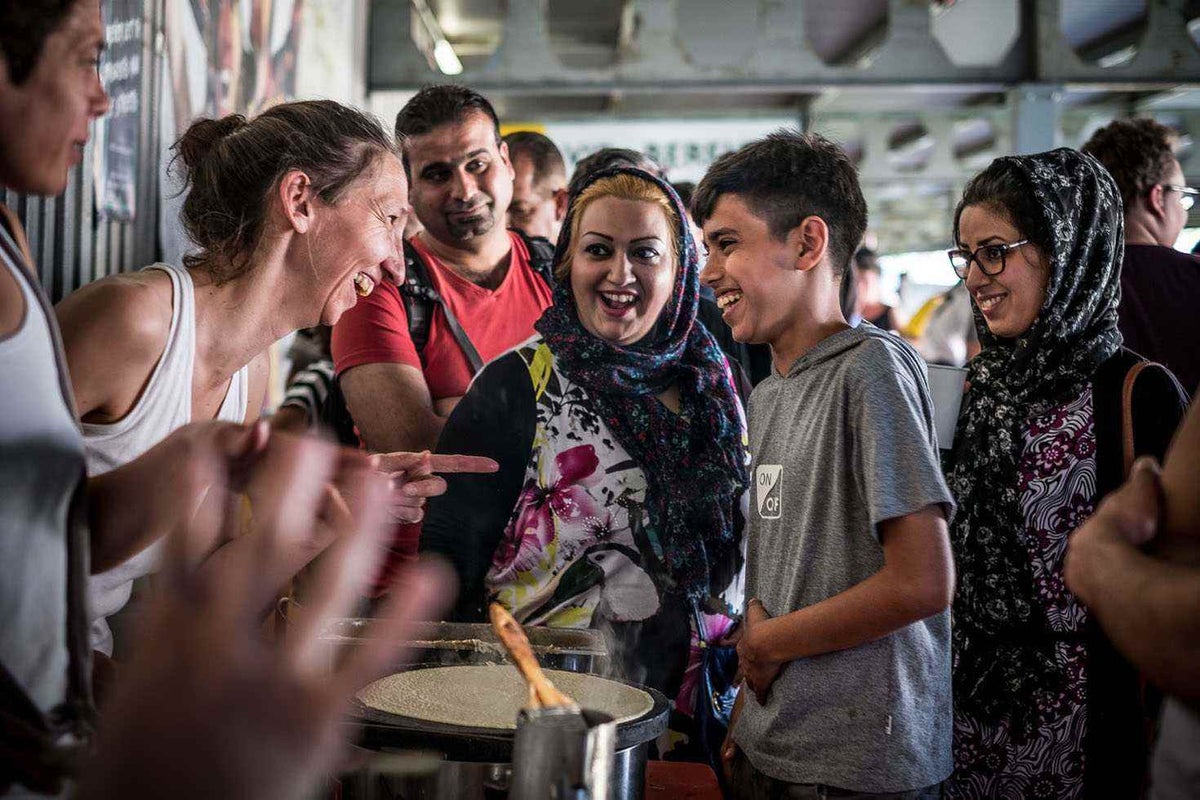
Christa makes food every day at work but today is special. She’s cooking crepes at an event to support refugees being processed in Vienna. In just six hours, her stall makes 400 crepes and raises over $1,200 Australian dollars.
“I work so much so I don’t have the time to work every day for the refugees,” she says. “So today is the day we work to raise money for the people who help the refugees.”
“I have a daughter here,” Christa says, pausing to gather herself. “She is twelve years old, and I don’t want her to grow up in a society that’s filled with hate. My cafe is in a district that’s 50% migrants, so it’s my daily reality to talk to people, learn about their cultures, and make them feel welcome.”
11. And these Europeans who opened the doors to their communities and homes
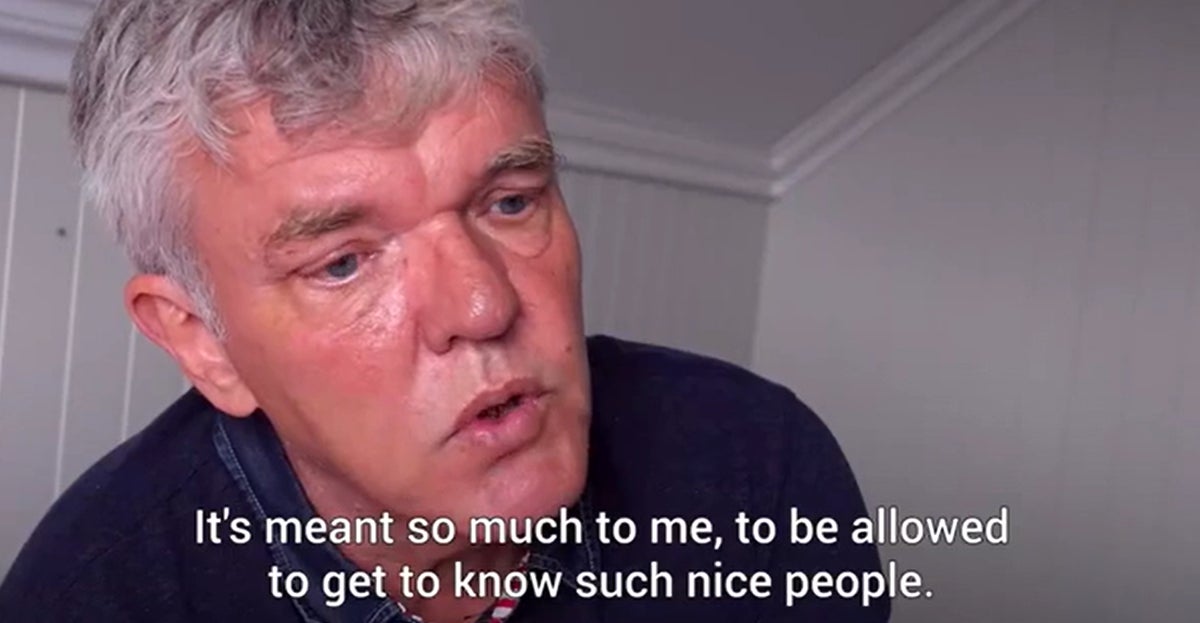
This Norwegian man is welcoming Syrian refugees with open arms
This Norwegian man is welcoming Syrian refugees with open arms
“They’re not ‘poor’ people that need help,” says Frode, a Norwegian man who is welcoming refugee families to his country. “They just need support to adjust themselves in a new community.”

Eugenia is helping a family of Syrian refugees living in her town in Greece. “We try to offer them what they need,” says Eugenia. “Clothes, everything, the food every day of course. We take them to the medical centre when they need. We have a group of volunteers. We organise celebrations to have fun.”
“I very much sympathise with these mothers. I feel their pain, their agony, their stress. And of course, their right and hope to live in a peaceful world with all other people, to share the goods of life, and the happiness of life, especially peace, and the happiness of seeing our children to grow up.”
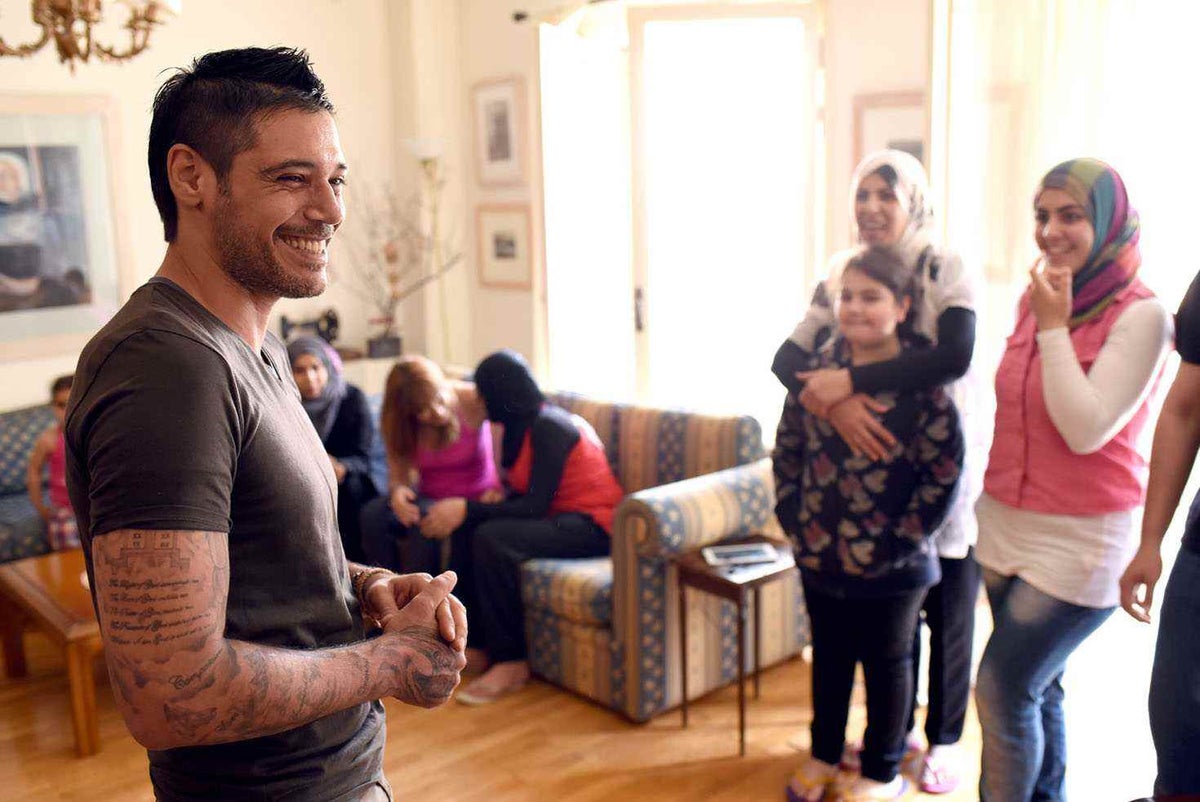
Spyros, a volunteer with Greek NGO SolidarityNow, is sharing his Athens home with several refugee families, among them young children and a heavily pregnant mother.
“I didn’t even think about it,” he says. “It was just impossible for me to let them stay in this condition, so I just took them in my house.”
12. This young woman who volunteers with UNICEF to support child victims of Boko Haram’s violence
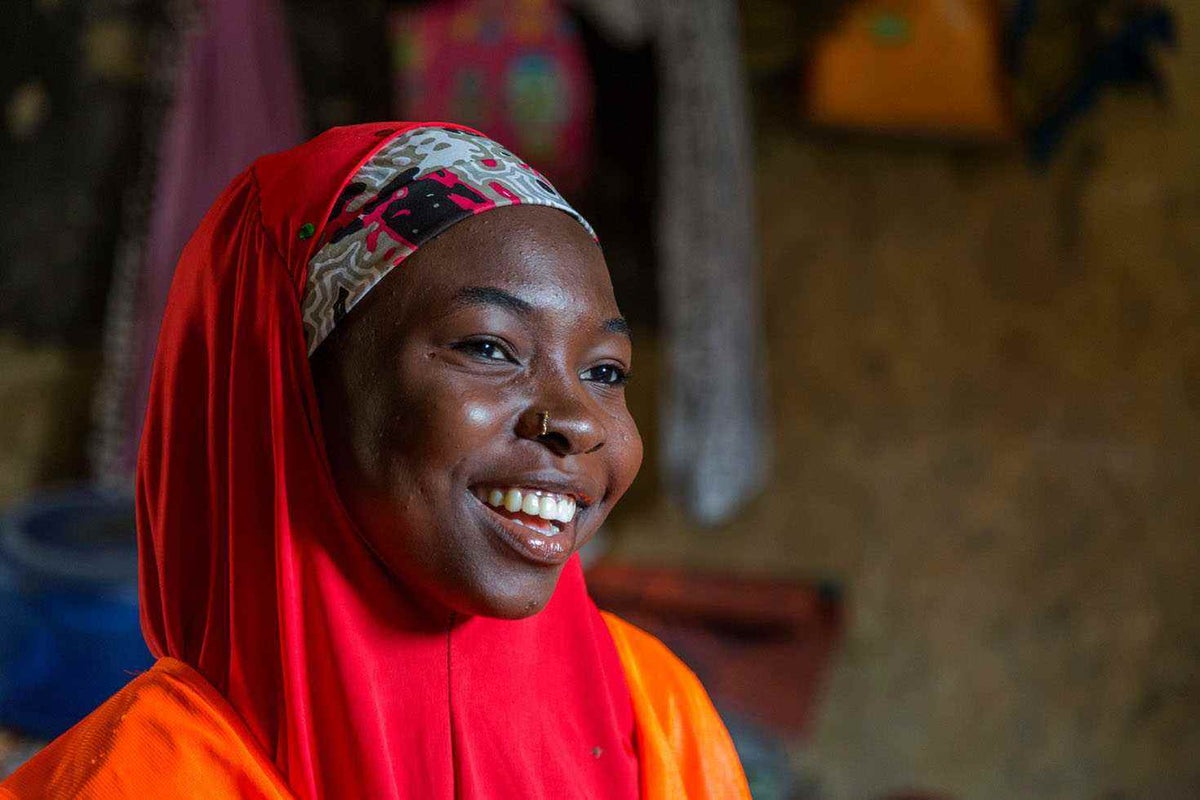
“In this camp I have known many children who passed through horrific experiences under the siege of Boko Haram,” says Firdau. She knows all too well the impact of this violence after being threatened by Boko Haram herself.
The harrowing experience inspired Firdau to volunteer with UNICEF to help children like her deal with the horrors they have endured. She’s one of hundreds of UNICEF volunteers helping to reach 436,201 children with psychosocial support this year alone.
“Some of their parents were killed, slaughtered, tortured and so on. Many of them are going through all sorts of traumas,” explains Firdau.
“My will to help these children from the difficulties they are facing here has motivated me to become a psychosocial volunteer in the camp. We engage them in various activities to keep their minds busy like drawing, playing games and music. Children are slowly forgetting their past bad memories.”
13. This Syrian woman who volunteers with UNICEF to help newborn refugees
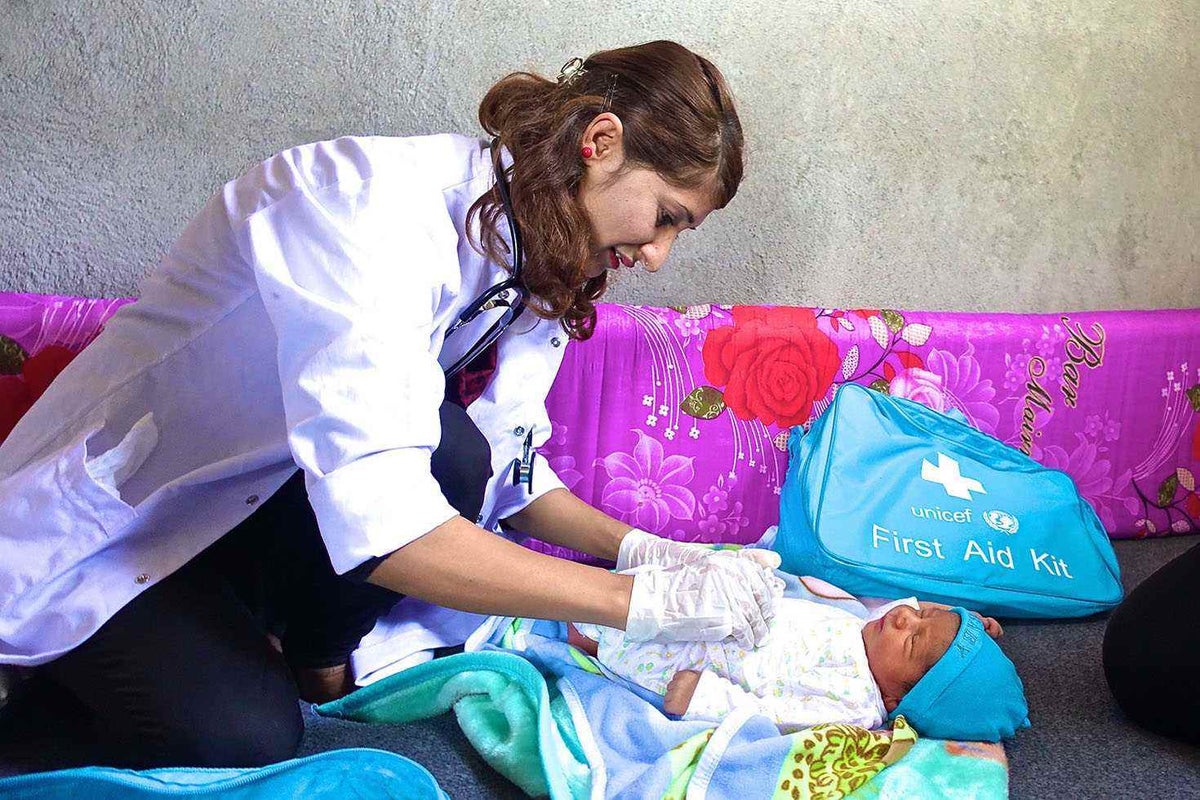
Janda is a 24-year-old Syrian refugee who selflessly volunteers as a health worker with UNICEF in Iraq. “I love babies and children," she says, "and I’m so happy to be able to help my people."
She was enrolled in nursing school when her family fled the Syrian conflict and hopes to one day finish her studies. Now in her new life as a UNICEF volunteer, Janda works with pregnant women and new mothers to provide prenatal and postnatal counseling and care.
Much of it takes place in UNICEF Baby Huts - safe spaces for pregnant women and new mothers to breastfeed in private, to receive counseling and to let their other children play while they tend to their babies. In 2016 alone, UNICEF will reach 434,000 children with health screening and treatment, as well as help 14,655 families buy essentials from local markets with direct cash transfers. Learn more about Janda and UNICEF’s work for mothers and babies in Iraq.
14. And this Nigerian midwife who has kept working after Boko Haram forced her to leave home
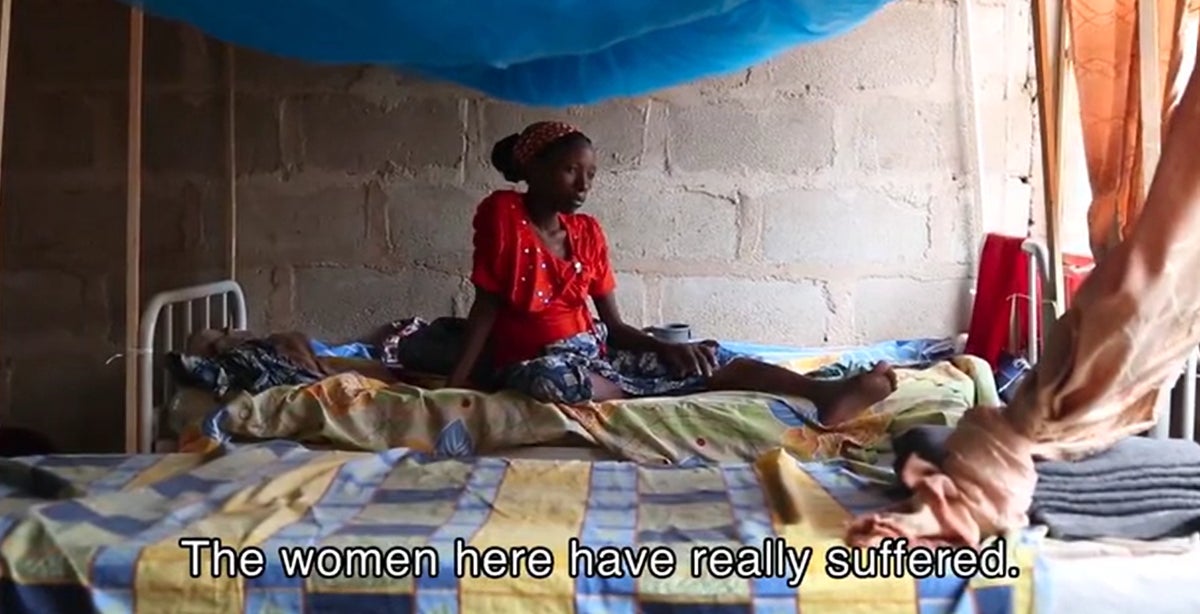
Dedication
Dedication: when Boko Haram forced this Nigerian midwife to flee her home, she went straight back to work helping other displaced women to give birth safely.
After 38-year-old Aisha* was threatened by Boko Haram, she bravely went straight back to work. Now, she’s at a UNICEF-supported maternity ward helping other displaced women to give birth safely.
Now more than ever, UNICEF depends on volunteers like Aisha. With Boko Haram’s violence escalating in Nigeria and the Lake Chad region, people like Aisha will help UNICEF reach 4.3 million children and families with emergency health care services this year.
* Not her real name.
Be there for children in crisis
It’s the tenacity of volunteers like Mohammed, Kinan and Janda that brings communities protection and hope during violent conflict. It’s the generosity of people like Darcia, Frode and Alec that helps children recover after they’ve fled violence.
And it’s the kind donations of UNICEF supporters that give our teams the supplies and support they need to continue their incredible work for children.
By making donating to the UNICEF Australia, you can help us:
- Meet urgent needs for health care, nutrition and education
- Give children safe spaces to play, learn and receive psychosocial support
- Be ready to respond with life-saving aid as soon as emergencies strike
We need your help now more than ever. UNICEF is working to reach more children in more places but the global refugee crisis has stretched our teams and resources to the limit. For too many children, time is simply running out.
Related articles
Stay up-to-date on UNICEF's work in Australia and around the world



